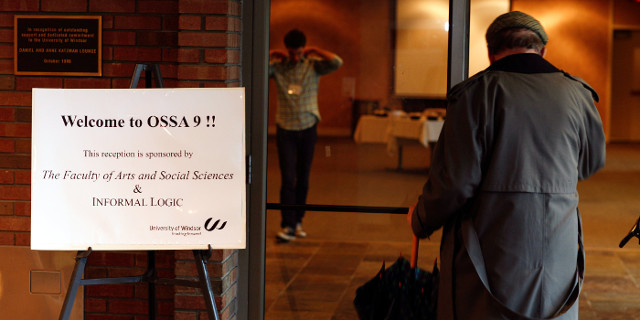
Location
University of Windsor
Document Type
Paper
Keywords
Argument, critical thinking, emotion, fear-driven inference, inference, logic, motivated inference, neuroscience, psychology
Start Date
18-5-2011 9:00 AM
End Date
21-5-2011 5:00 PM
Abstract
This article challenges the common view that improvements in critical thinking are best pursued by investigations in informal logic. From the perspective of research in psychology and neuroscience, human inference is a process that is multimodal, parallel, and often emotional, which makes it unlike the linguistic, serial, and narrowly cognitive structure of arguments. Attempts to improve inferential practice need to consider psychological error tendencies, which are patterns of thinking that are natural for people but frequently lead to mistakes in judgment. This article discusses two important but neglected error tendencies: motivated inference and fear-driven inference.
Creative Commons License

This work is licensed under a Creative Commons Attribution 4.0 International License.
Critical Thinking and Informal Logic: Neuropsychological Perspectives
University of Windsor
This article challenges the common view that improvements in critical thinking are best pursued by investigations in informal logic. From the perspective of research in psychology and neuroscience, human inference is a process that is multimodal, parallel, and often emotional, which makes it unlike the linguistic, serial, and narrowly cognitive structure of arguments. Attempts to improve inferential practice need to consider psychological error tendencies, which are patterns of thinking that are natural for people but frequently lead to mistakes in judgment. This article discusses two important but neglected error tendencies: motivated inference and fear-driven inference.

